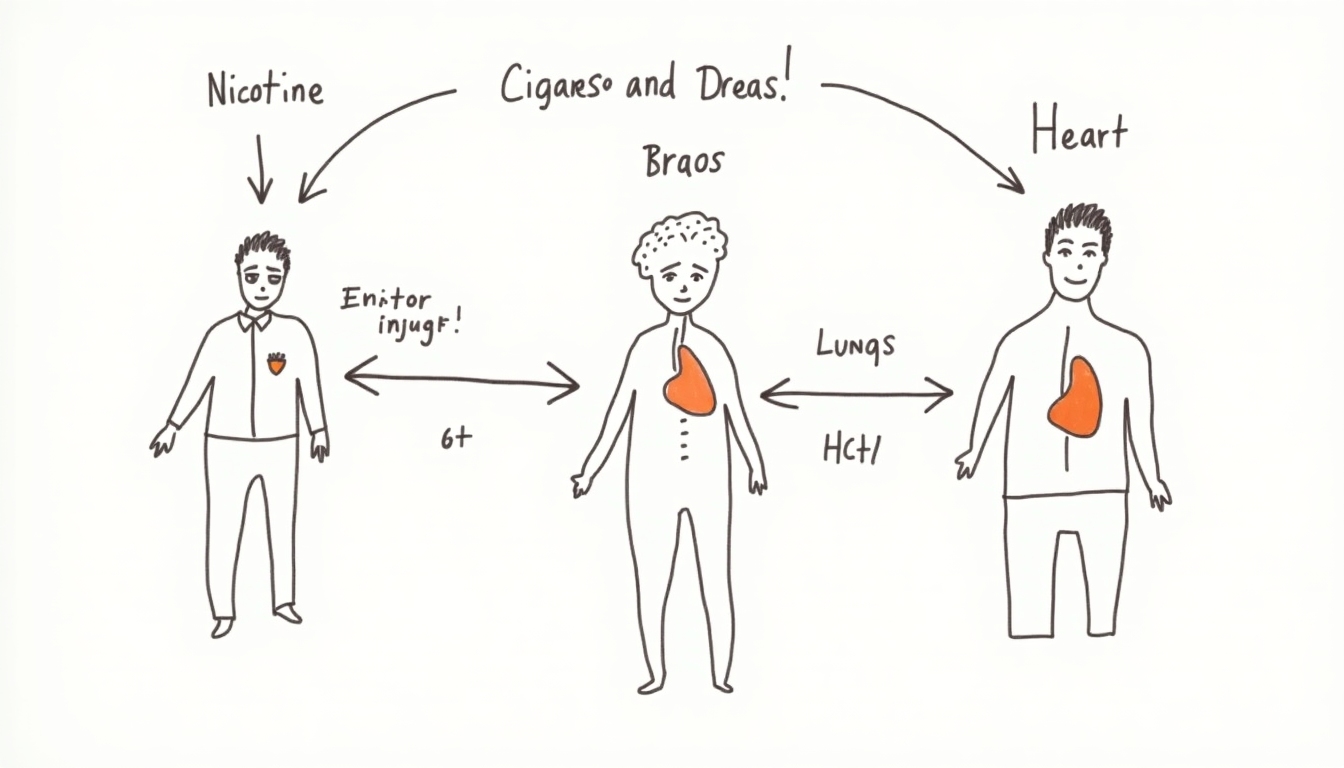Nicotine addiction traps millions in a cycle of dependence, affecting both body and mind. This article explores what it is, why it’s so hard to quit, and how to break free using practical methods like behavioral therapy and family support.

What is Nicotine Addiction?
Nicotine addiction happens when someone can’t stop using tobacco because of nicotine, a chemical in cigarettes. It hooks you by making your brain crave it. When you smoke, nicotine hits your brain fast, releasing chemicals that make you feel good—for a moment.
Over time, your body gets used to it. Without nicotine, you feel restless, cranky, or even sad. That’s why quitting feels like climbing a mountain. It’s not just a habit; it’s a real dependence.
How Nicotine Messes with You
Nicotine doesn’t just stay in your head. It speeds up your heart, tightens your blood vessels, and makes breathing harder over time. It can lead to serious problems like heart attacks or lung disease. Mentally, it messes with your focus and mood, making life without a cigarette feel empty.

Behavioral Therapy: A Game-Changer for Quitting
Behavioral therapy helps you change how you think and act about smoking. It’s not about willpower alone—it’s about retraining your brain. You work with a counselor to spot triggers, like stress or coffee, and find new ways to cope.
Aversion Therapy for Smoking Cessation
One type of behavioral therapy is aversion therapy. It makes smoking feel bad instead of good. For example, some people take a pill that makes cigarettes taste awful. Others imagine gross things while smoking. It’s not for everyone, but it can help break the cycle.

The Benefits of Family Therapy in Smoking Cessation
Quitting is easier when your family’s on board. Family therapy brings everyone together to support you. They learn how to cheer you on, avoid fights, and keep you motivated. It’s about building a team to tackle addiction.
Why Family Matters
When your spouse or kids help, you’re less likely to give up. They can distract you from cravings or remind you why you’re quitting—like being around for your grandkids. Research shows family support doubles your chances of success.

More Ways to Beat Nicotine Addiction
There’s no one-size-fits-all fix, but here are some solid options:
- Medications: Things like nicotine patches or gum cut cravings by giving you small, safe doses. Prescription drugs can also help.
- Support Groups: Meeting others who get it can keep you going.
- Healthy Habits: Exercise or eating better can replace smoking and lift your mood.
Mix and Match for Success
Combining these can work wonders. Imagine using a patch to ease the physical stuff while therapy tackles your mind. It’s like attacking addiction from all sides.

Real Stories from Real People
I’ve seen this fight up close. My uncle smoked for 20 years. He tried quitting cold turkey and failed every time. Then his wife and kids got involved. They went to family therapy, and it clicked. He’s been smoke-free for three years now.
Then there’s my friend Lisa. She used behavioral therapy and a nicotine spray. She told me, ‘I had to figure out why I smoked—boredom, mostly. Once I knew that, I could stop.’ Her story shows how personal this journey is.
What I’ve Learned
No two people quit the same way. Some need a push from family; others need a plan from a therapist. The key is finding what works for you and sticking with it, even when it’s tough.

Wrapping It Up
Nicotine addiction is a beast, but you can beat it. Understanding how it hooks you is the first step. From there, try behavioral therapy, lean on your family, or mix in other tricks like medication. It’s a hard road, but worth it. You’ve got this.
Recommended Readings
Want to dig deeper? Check out these articles:
Discuss Here